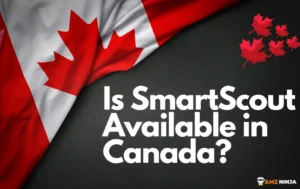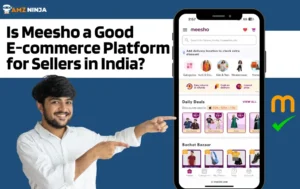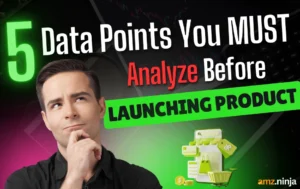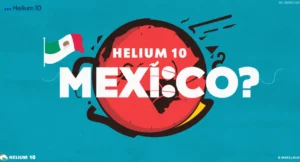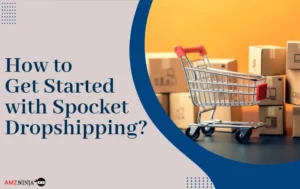Ever thought of having your own product selling like hotcakes on Amazon without dealing with inventory nightmares or shipping headaches? Well, that's the dream of private label selling through Amazon's FBA program. But with over 2 million other sellers, how do you stand out?
Later in this article, we'll cover some of the success tips for Amazon FBA Private label. From finding a winning product to optimizing listings to driving sales through strategic marketing – we've got you covered. From Amazon sellers just starting out, to the ones that want to take their business to the next level, these tactics and strategies are set to help you in one way or another.
What is Amazon FBA Private Label?
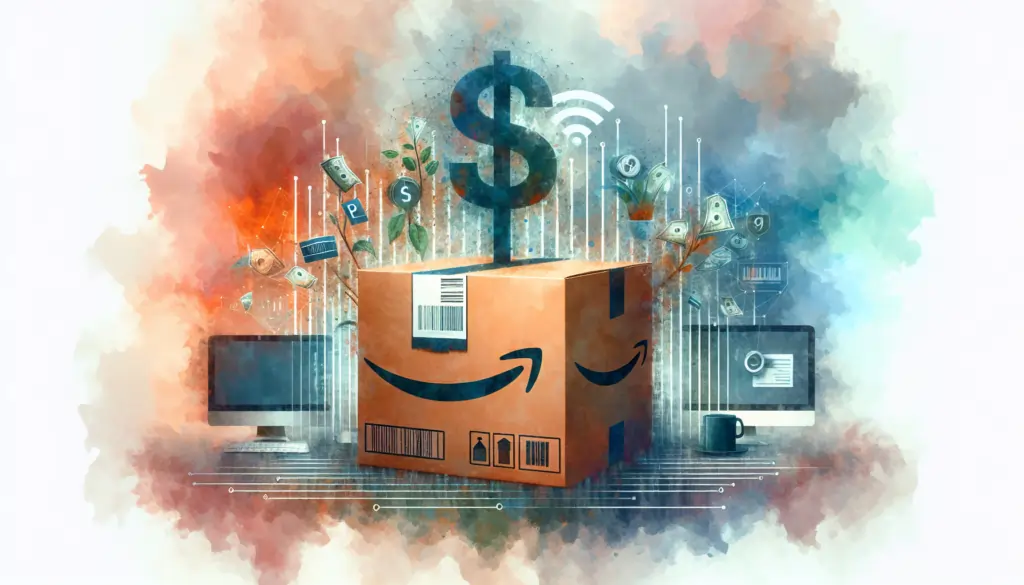
Amazon FBA Private Label refers to selling your own branded products on Amazon while taking advantage of their fulfillment and shipping services. As a private label seller, you find a product to source from a manufacturer, create your own brand and packaging, and send inventory to Amazon's warehouses.
When orders come in, Amazon handles picking, packing, shipping, customer service, and returns for your product. This model allows you to use Amazon's massive customer base and logistics capabilities without having to manage inventory or shipping yourself.
Amazon FBA Private Label vs Traditional FBA
| Feature | Private Label FBA | Traditional FBA |
|---|---|---|
| Product Ownership | Own brand/product | Resell existing products |
| Product Sourcing | Source from manufacturers | Source from distributors/wholesalers |
| Competition | Compete on branding/marketing | Compete on price |
| Potential Profits | Higher potential profits | Lower potential profits |
The key difference between Amazon FBA Private Label and Traditional FBA is product ownership. With Private Label, you create your own branded product sourced from a manufacturer, allowing for higher profit margins but more upfront costs. Traditional FBA involves reselling existing products from brands, which is easier to start but with more competition on price.
Types of Private Label Products for Amazon
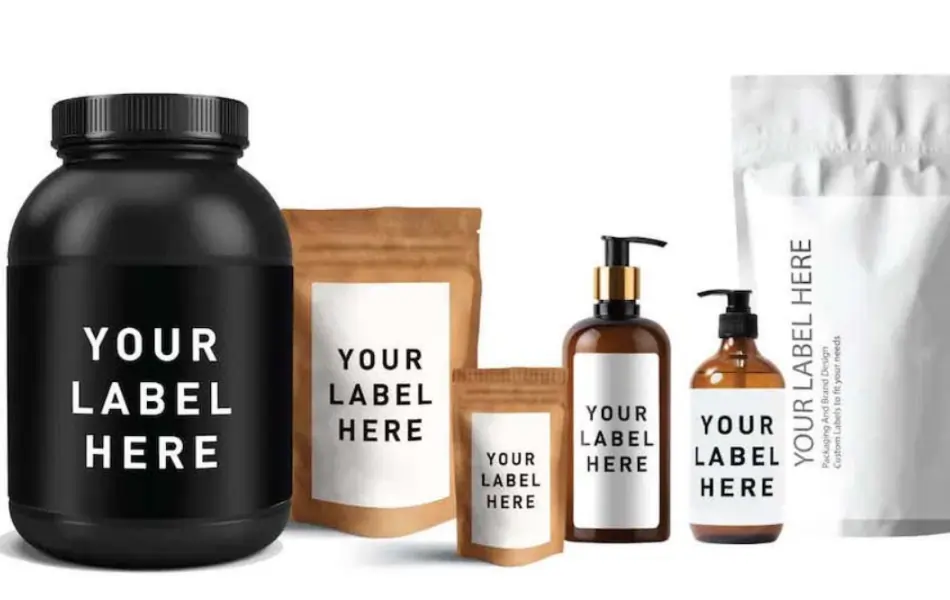
The possibilities for Amazon FBA private-label products are virtually endless. Some popular categories include:
- Home & Kitchen (cooking utensils, storage containers, cleaning supplies)
- Health & Personal Care (supplements, grooming products, fitness gear)
- Toys & Games (educational toys, puzzles, outdoor games)
- Office Products (desk organizers, computer accessories)
- Pet Supplies (beds, toys, grooming tools)
- Outdoor & Sports (camping gear, workout equipment)
The main thing is to find a product that solves a common problem, has high demand, and allows you to differentiate with branding and marketing. Do market research on Amazon's best-seller lists, check out competitor products, and look for opportunities to improve existing products.
From an Amazon seller's perspective who has been in this game for quite some time, I would recommend you to get along with some tools like Helium 10 that would offer you an upper hand in terms of competitor research, market research, creating your optimized listing, and more.
Helium 10 for Amazon FBA Private Label Success
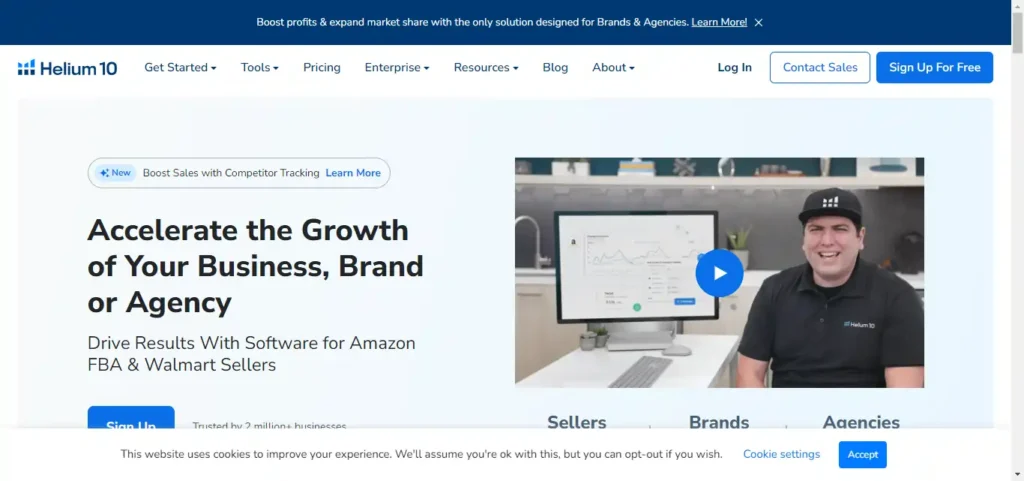
One tool that can be incredibly valuable for Amazon FBA private label sellers is Helium 10. This all-in-one Amazon seller suite provides a range of features to help you find profitable product opportunities, optimize listings, run paid advertising campaigns, and manage your business more efficiently. The market research tools allow you to analyze demand, competition, and trends for different product ideas.
The listing optimization features guide you in crafting compelling titles, bullets, descriptions, and images. The Adtomic helps you set up and optimize your Amazon PPC campaigns. From product research to driving sales and everything in between, Helium 10 can give Amazon sellers an edge in the private label space.

Save 20% for First 6 Months on Helium 10
exclusive
Use our Helium 10 coupon code “BLOGE6M20” to save 20% for the first 6 months. Or save 10% for a lifetime if opting for the annual plan.
Save 20%
Successful Tactics for Amazon FBA Private Label
Selling private label products through Amazon's Fulfilled-by-Amazon (FBA) program is a smart move for online business owners. Let's break down why Amazon FBA rocks and why market research is your best friend.
Why Amazon FBA is Profitable for Private Label?
Amazon FBA has a bunch of perks that can make your life easier and your business more successful. Here’s why you should consider it:
Using Amazon FBA lets you take advantage of these benefits, freeing you up to focus on building your brand. For more tips on using Amazon's platform, check out our guide on how to use Amazon Seller Central.
Market Research for Private Label Products
Market research is key to crushing it with Amazon FBA private label products. You need to find profitable niches, understand what customers want, and keep an eye on the competition. Here’s how to do it right:
Getting along with the perks of Amazon FBA and doing solid Market Research are must-dos for anyone looking to succeed with Amazon private label products.
Boosting Your Amazon Listings
If you're looking to crush it with Amazon FBA private label, getting your listings in tip-top shape is a must. Good listings mean more eyeballs and more sales. Let's break down the essentials and some killer strategies to make your Amazon listings pop.
Strategies to Amp Up Your Amazon Listing
To really make your listings shine, try these tactics:
By focusing on these tips, you can make your Amazon listings stand out, get more visibility, and boost your chances of success with Amazon FBA private label products. For more tips, check out our articles on Amazon FBA freight forwarders and Amazon FBA startup costs.
Pricing and Profitability Strategies
Getting right with your pricing and profitability is like hitting the jackpot for Amazon FBA private label sellers. Get it right, and you're golden. Mess it up, and, well, let's not go there.
Pricing Private Label Products
Setting the right price for your private-label products isn't rocket science, but it does need some thought. Most Amazon sellers find that keeping prices between $20 and $50 is the sweet spot for turning a profit. This range covers your cost of goods sold (CoGS) and those pesky advertising expenses.
Charm pricing, or psychological pricing, is a nifty trick. Pricing something at $19.99 instead of $20 can make it seem like a steal. A/B testing different prices can also help you figure out what works best.
Profit Margin Considerations
Profit margins are your bread and butter. Aim for a profit margin between 25% and 30%. Almost half of the top sellers keep their margins between 21-50%. This cushion helps cover initial advertising costs and keeps your business in the black.
Let's look at some of the important formulas for Profit calculation:
Profit = Revenue − Cost of Goods Sold COGS − Amazon Fees − Other Costs
Where:
Revenue = Selling price of the product x Number of units sold
Cost of Goods Sold (COGS) = Manufacturing cost per unit x Number of units sold
This includes costs like:
- Product sourcing/manufacturing costs
- Shipping costs to get inventory to Amazon
- Packaging and labeling costs
Amazon Fees = Sum of all Amazon seller fees, which typically include:
- Amazon referral fee (percentage of selling price)
- FBA fulfillment fees (based on product size/weight)
- FBA monthly storage fees
- Other fees like long-term storage fees, removals, returns, etc.
You can use tools like the free Amazon FBA Revenue Calculator or Helium 10's FBA calculator to estimate these Amazon fees based on your product details.
Other Costs = Additional costs like:
- Product research and development
- Product samples
- Marketing and advertising spend
- Professional services (photography, design, etc.)
So in Summary:
Profit = (Selling Price×Units Sold) − (Manufacturing Cost per Unit×Units Sold) − Amazon Fees− Other Costs
It's important to carefully track and account for all costs involved in your Amazon FBA private label business to accurately calculate profits. Tools like calculators and spreadsheets can help, but monitoring your actual sales, fees, and expenses is crucial.
In addition to all this, setting a business price on Amazon lets commercial customers buy tax-free and get bulk discounts. This can encourage large orders and boost your sales.
Common Queries Regarding Amazon FBA Private Label
How Do I Choose a Private Label Product?
How Can I Differentiate My Private Label Product?
What are the Costs for Private Labeling?
What are Private Label Advantages Over Reselling?
Your Success Awaits
There you have it – the keys to dominating the Amazon private label game. From finding that golden product opportunity to optimizing listings and driving sales, we've covered all the tactics used by the most successful Amazon sellers.
While it takes work to build a thriving FBA private label business, the potential rewards of creating your own brand and product line are massive. Think of this as the freedom of making money while you sleep as Amazon handles orders for your top-selling product or the pride of walking into a store and seeing your brand on the shelves.
So what are you waiting for? Take what you've learned here and start researching product ideas today.
Your first million-dollar brand could be just one product away!


